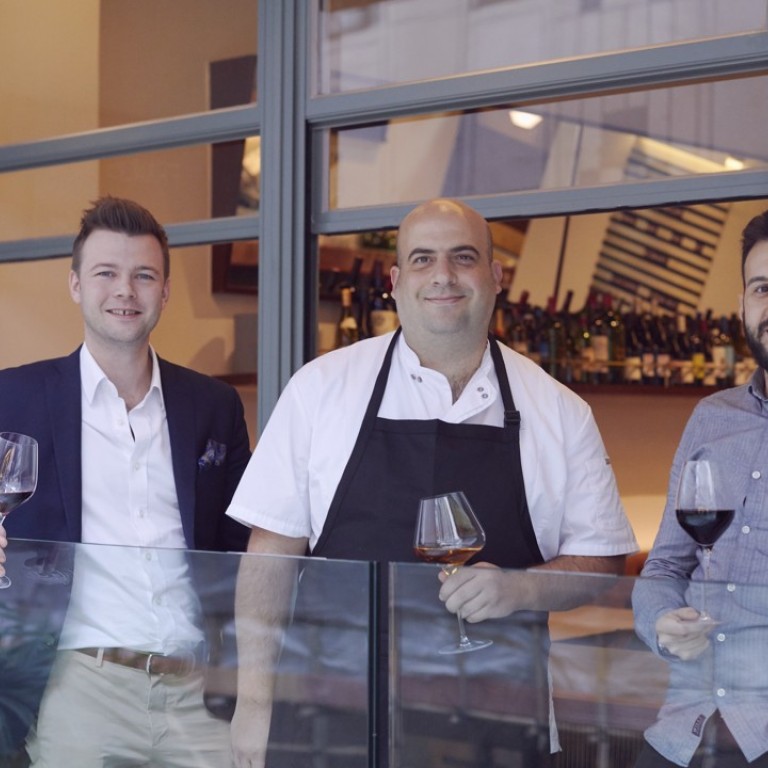
More than just a kebab. These chefs are redefining Middle Eastern cuisine with a fresh take in Hong Kong
By delving into the traditions and reworking family recipes, culinary veterans are about to change the game in the city’s Middle Eastern dining scene
“Middle Eastern cuisine is abundant and generous. It’s a way of eating that has the power to connect people,” – chef Jad Youssef
“The food itself is important, but it’s secondary to the actual idea of eating together,” – chef Asher Goldstein
Few would dispute Hong Kong’s status as a culinary melting pot – a stroll through Soho is like travelling around the world with your taste buds. Nevertheless, the Middle Eastern dining scene has not taken off as much as the other metropolises worldwide such as New York and London. In fact, the region’s cuisine is often misidentified as Mediterranean food, or is generalised with the more notable dishes such as kebabs, hummus and grilled meats.
With Middle Eastern cuisines’ popularity skyrocketing and diners with adventurous palates continue seeking new flavours, it is time for Hong Kong to rethink the cuisine.
There’s something unique about Middle Eastern food – it comes with a story. Chef Jad Youssef’s culinary concept for example, is deeply intertwined with family traditions and childhood memories “I’ve always adored my mum’s kitchen in our Beirut home. My mother is a passionate cook and thanks to her culinary open-mindedness and her unscripted inventions in the kitchen, I fell in love with creative cooking,” says the executive chef of Maison Libanaise.
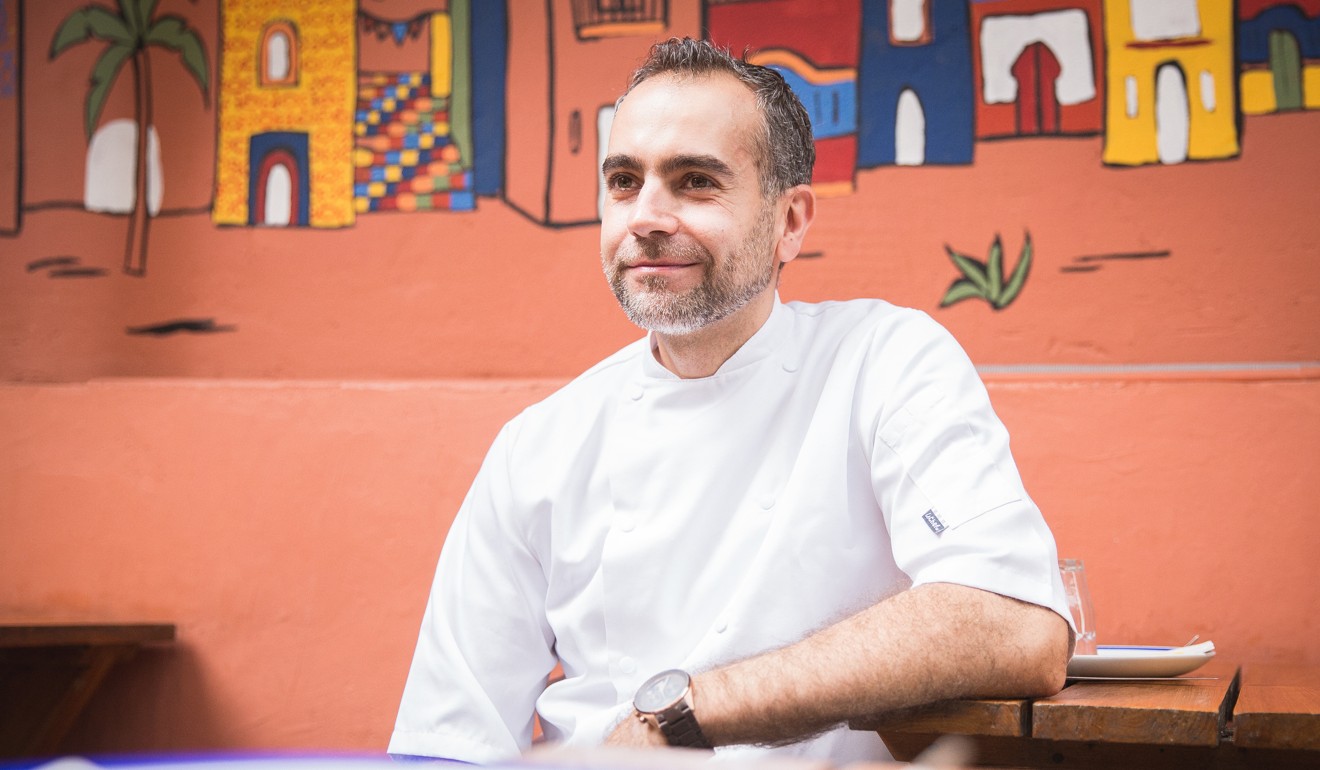
The Lebanese chef grew up helping his mother preparing home-cooked feasts and assisting his father at work in his popular pastry shop. “Dad’s pastry shop was always warm with freshly baked pastries, trays of baklava and knefe. He would be up working from 5am to get the knefe ready for the morning rush. Neighbours would drop by on their way to work for breakfast, coffee and a chat,” recalls Youssef.
The hearty execution of food and the connection with customers remain as the core of the Lebanese chef’s philosophy. “The fragrant aromas of rose and orange blossom water that clouded the bakery reached all the way to the end of the street, which I think is probably incomprehensible in the industrialised West now. Customers loved the old-style pastry shop interior and the daily hustle and bustle of dad’s local neighbourhood gem.”
Family dinners are a pillar of life in the Middle East. “Every Friday night, our family would meet and have dinner together. The food itself is important, but it’s secondary to the actual idea of eating together,” recalls chef Asher Goldstein, co-founding partner and head chef of Francis. “Even when we have grown up, the tradition continues. Every Friday, one of my sisters brings the bread, the other brings a pie and my mum makes the stew. Everyone brings a dish and we all share the food together.” In many ways, the sense of sharing a casual yet warm Middle Eastern meal is the key ingredient.
Food in the Middle East goes beyond just sustenance. The idea of eating together is central to Middle Eastern culture, and many households spend hours, even days, to prepare a remarkable spread of dishes for family meals. “I have seven aunties, and every holiday my mum would send me to different auntie’s place for two weeks. Growing up I always used to compare their cooking skills,” laughs Goldstein. “They all have Iraqi backgrounds so their cooking is full of stew and a lot of carbs. They all follow the same family recipes, which are passed on through generations.”
While both chefs hailed from the Middle East, they have left footprints in other corners of the world. Having won the hearts and stomachs of Londoners with his rustic Israeli cuisine and warm services at Yalla Yalla, a popular Lebanese street food restaurant-chain, Youssef joined the fast-growing Black Sheep Restaurants in January after calling London home for over a decade.
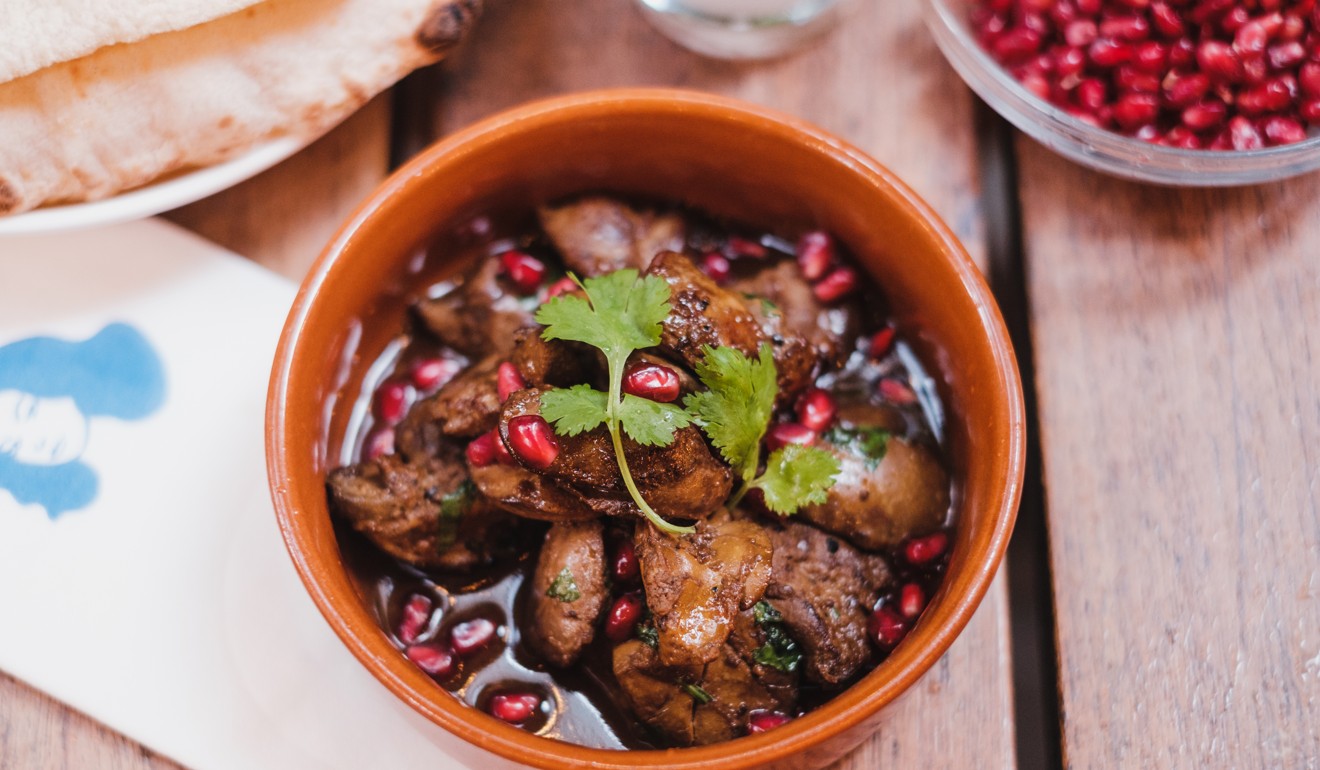
“Hong Kong had been on my mind for some time, as the culture of the city was fascinating to me,” points out Youssef. “Lebanese food is one of the most popular and fastest growing cuisines in the world but it isn’t as ubiquitous in Hong Kong as it is in other cities. The idea of being able to develop and popularise the food I love in a culinary hub like Hong Kong was hugely appealing to me.”
Currently taking the helm of Maison Libanaise, the three-storey hippie joint along the Soho escalator, Youssef is elevating experience of convivial meze-style eating by ensuring flavours and nutrition go hand in hand.
“Middle Eastern dishes are full of flavours, thanks to the array of herbs and spices you’ll find in every dish. While techniques are relatively simple for Middle Eastern recipes, the ingredients lists tend to be long, however more variety means more nutrients,” says Youssef. “I love to create dishes using spices such as Lebanese five spice, sumac, cardamom and cinnamon to add depth and warmth, while pomegranate molasses, seeds and different nuts add texture and bite.”
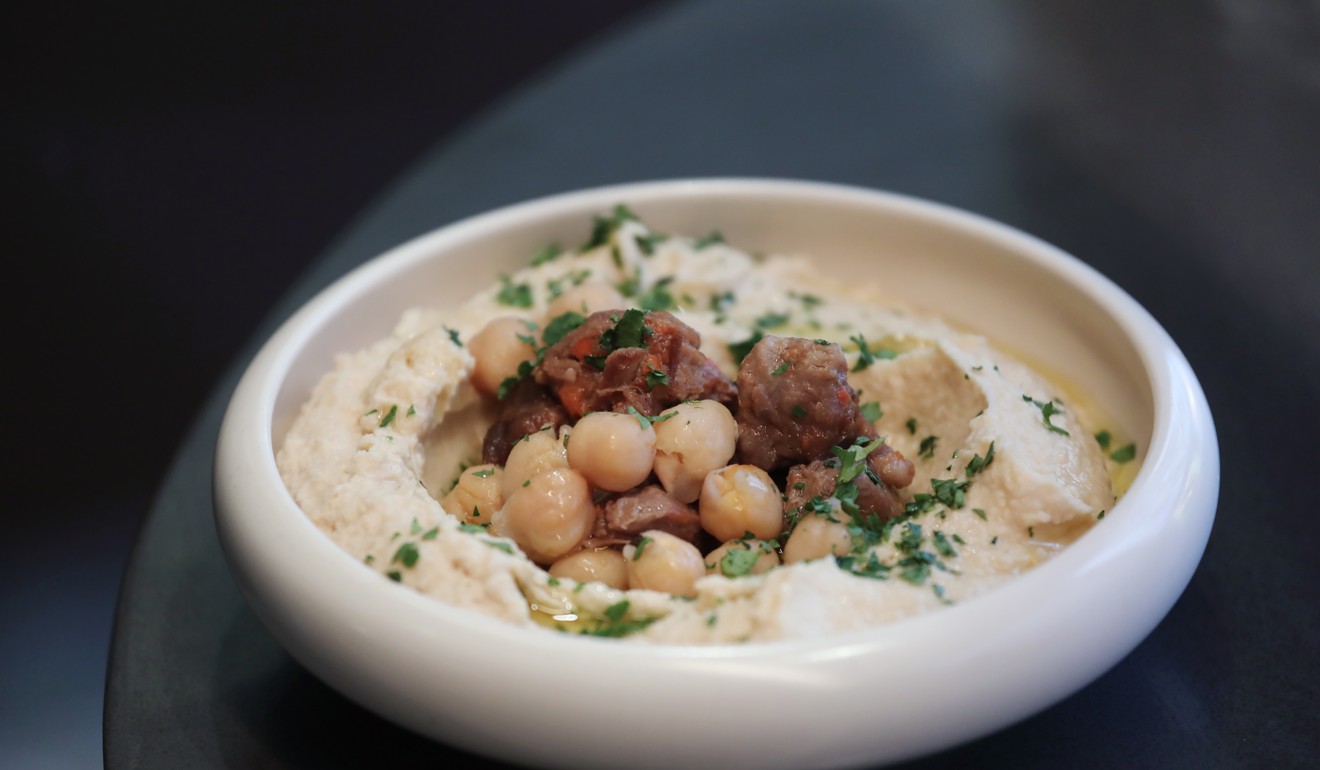
Similar to his successful restaurant concepts in London, Youssef wanted authenticity at the heart of Maison Libanaise. “We’ve recently added a few of my favourite dishes that are very typical examples of the Lebanese cuisine you’d find all over my hometown of Beirut.” Some of the must-try dishes include Sawda Djej, a comfort dish that is packed with flavours and nutrients, thanks to the combination of the tender chicken livers and the fresh garlic and pomegranate molasses. In fact, The Guardian and Time Out crowned this dish as one of “The Best 100 Dishes in London” in 2012.
Arayes, on the other hand, is also a humble crowd pleaser. Take a bite and you will be transported to the bustling streets of the Levant region. Think of it as a Middle Eastern sandwich filled with minced meat, tomatoes, onions, parsley and a melody of spices.
The welcoming restaurant offers hearty made-to-order street food for takeaway on the ground floor, known as Le Comptoir. For those who like to dine in, grab a seat at the alfresco space La Buvette, where you can enjoy tongue-tingling bites amid vibrant Moorish mosaic and colourful tiles. In case the rooftop is full, dine on the first floor, although it can be slightly too loud at times.
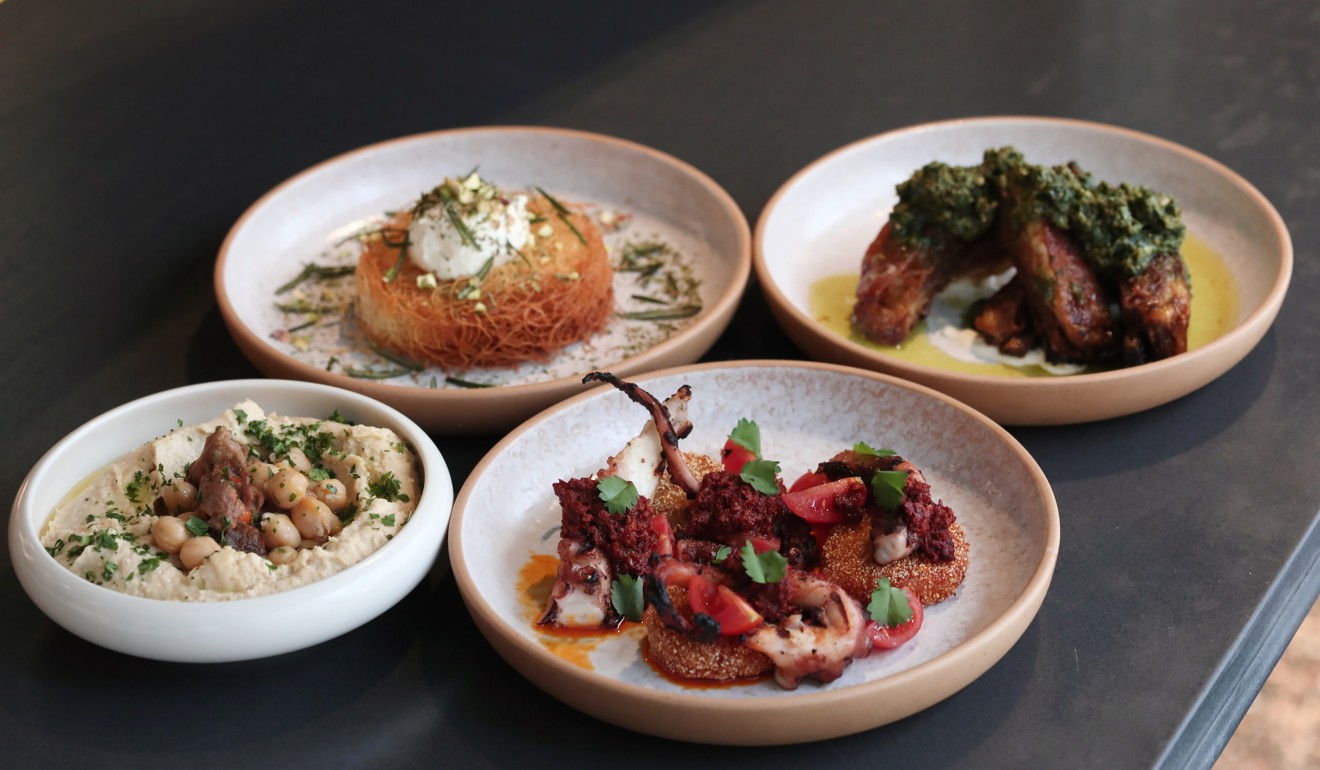
Despite the idea of Middle Eastern cuisine may remain exotic for many local diners, Youssef highlighted one important element that ties both Chinese and Middle Eastern food together. “The family-style meze dining that I love is not too dissimilar to the local Chinese way of eating. In fact, both our cultures prefer sharing lots of smaller dishes so you can try a lot, rather than having a big plate of one thing as you might in Europe.”
Originally from Israel and a native of Tel Aviv, Goldstein has over 12 years of culinary experience under his belt. “I was trained in a French cooking school in Sydney, where I learned how to make bread, cure meat and make Italian cheese. I did a lot of learning but never tried to apply these techniques on Middle Eastern food during my time there,” says Goldstein. “So when we were brainstorming the culinary concept of Francis, it just came naturally for me to focus on Tel Aviv cuisine with European influences.”
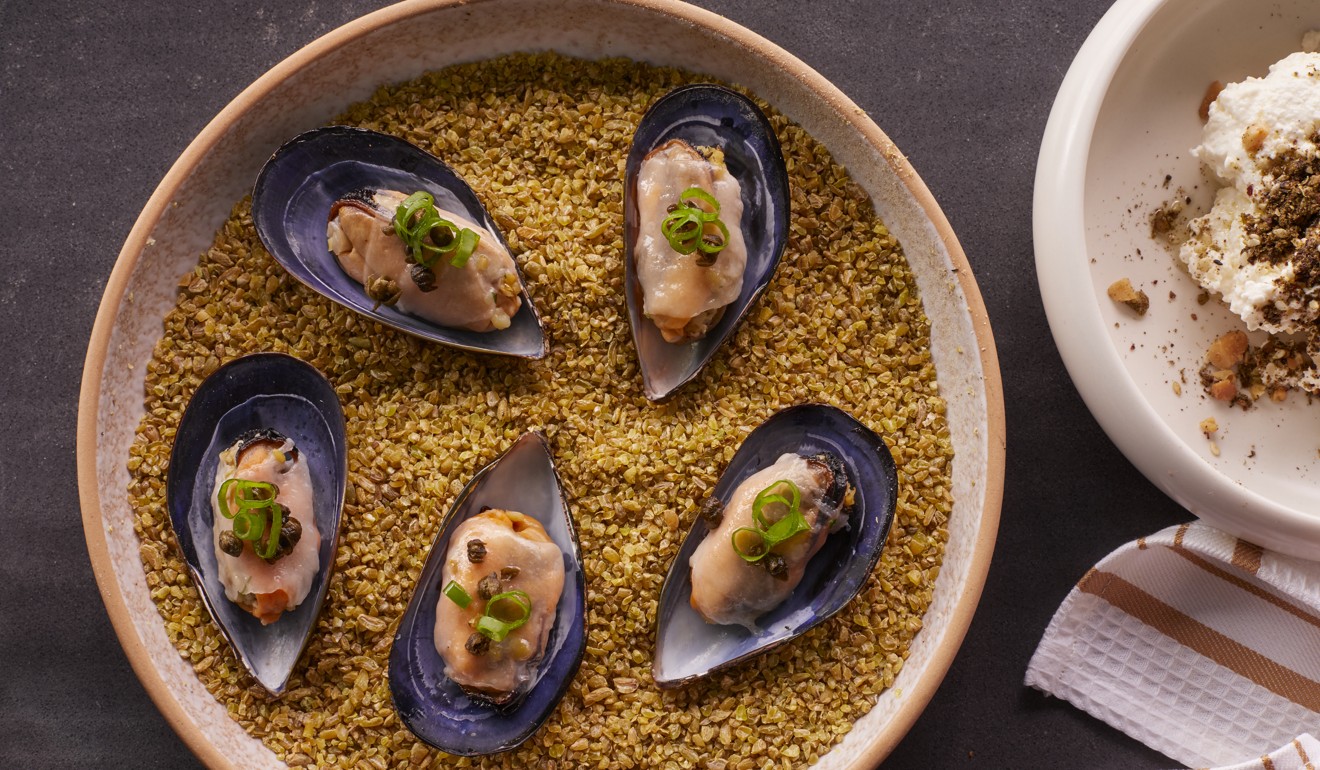
Nestled in the booming precinct of St. Francis Street, the new 30-seat restaurant is the joint concept between Goldstein, veteran restaurant manager James Ward and seasoned sommelier Simone Sammuri. The neighbourhood joint, despite only having opened in Wan Chai in January, has attracted a steady stream of diners, who return for the restaurant’s simple but well-executed dishes and its impressive wine list.
The chef has generously studded his ingredient-driven menu with a range of authentic mezzes, which are often derived from his grandmother’s nostalgic recipes. The smoked baby carrots with almond cream for example, is a rustic dish in which layers of flavour and dimension are added to the raw taste of carrots. “We first smoke them to give them a very meaty flavour, then roast it to add a caramelised and complex layer, lastly toss it with spiced honey, which is infused with 10 spices,” says Goldstein.
The star of the show is no doubt the hummus, which is served in an incredibly smooth and creamy texture with chucky chickpeas and tantalising lamb neck ragu on top, perfect to complement the home-made bread. “People in Israel judge how good of a cook you are by your hummus,” laughs Goldstein. “For me, I like to keep it very basic and authentic. There’s no spice added and it’s very clean, just the way we eat hummus back at home.”
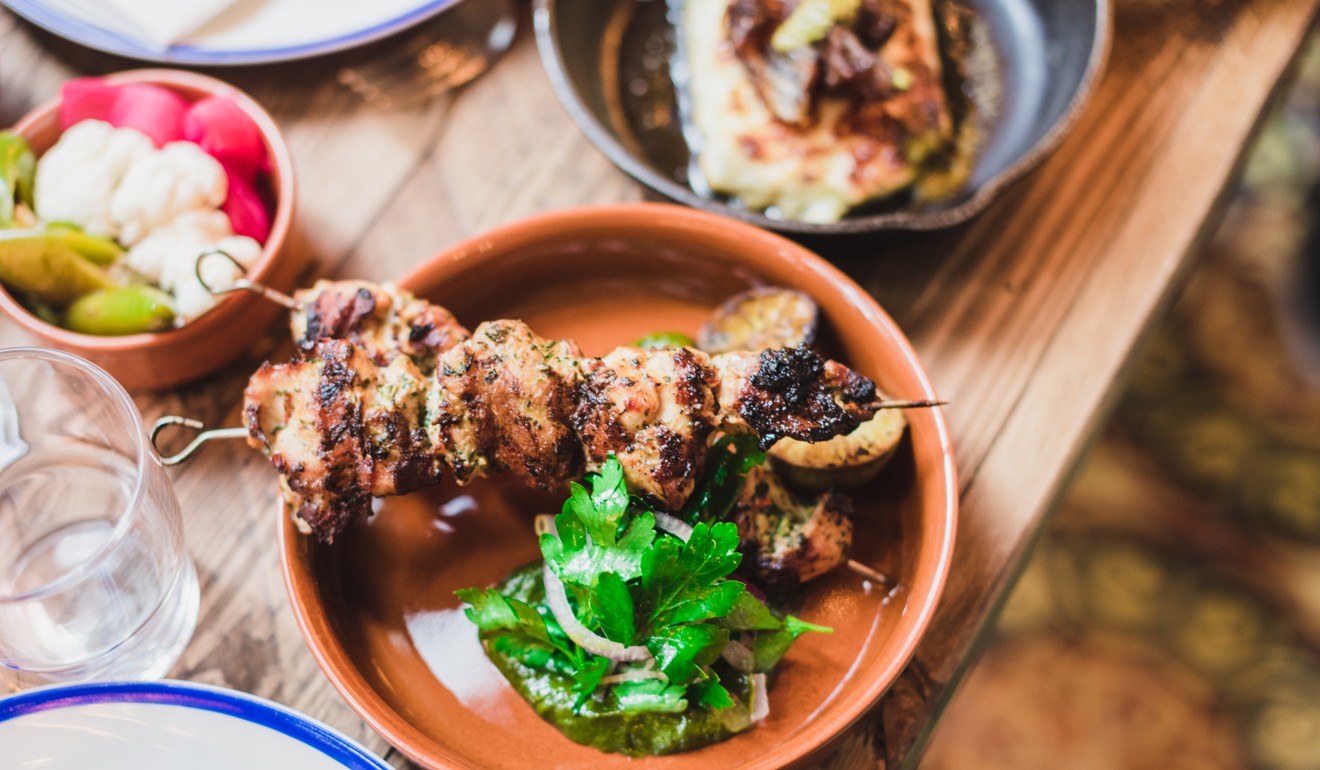
Highly driven by seasonal ingredients, the menu changes every few weeks, with a focus on seafood and quality vegetables. Other highlights include Moussaka, essentially an aromatic and nutritious vegetarian lasagne, fava bean falafel, grilled octopus with harissa as well as the delightful knafeh pastry.
On the reason why hasn’t Middle Eastern food been widely popularised in the city so far, Goldstein also remains puzzled “Local people love big and bold flavours. They like salty, sour and spicy flavours, and Middle Eastern cuisine carry them all. I suppose more contemporary executions are needed to approach mass customers.”
Perhaps what it takes for Middle Eastern food to take flight in the city is for chefs to inject innovative and surprising elements into the menu aside from staying true to their roots. More importantly, restaurateurs should shed light on the deep connection between food, the importance of family and the sense of togetherness, which is also core to the Chinese dining culture. After all, good food may win a diner’s stomach, but it takes a unique connection to conquer one’s heart.

